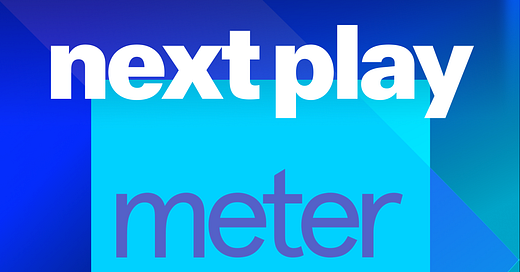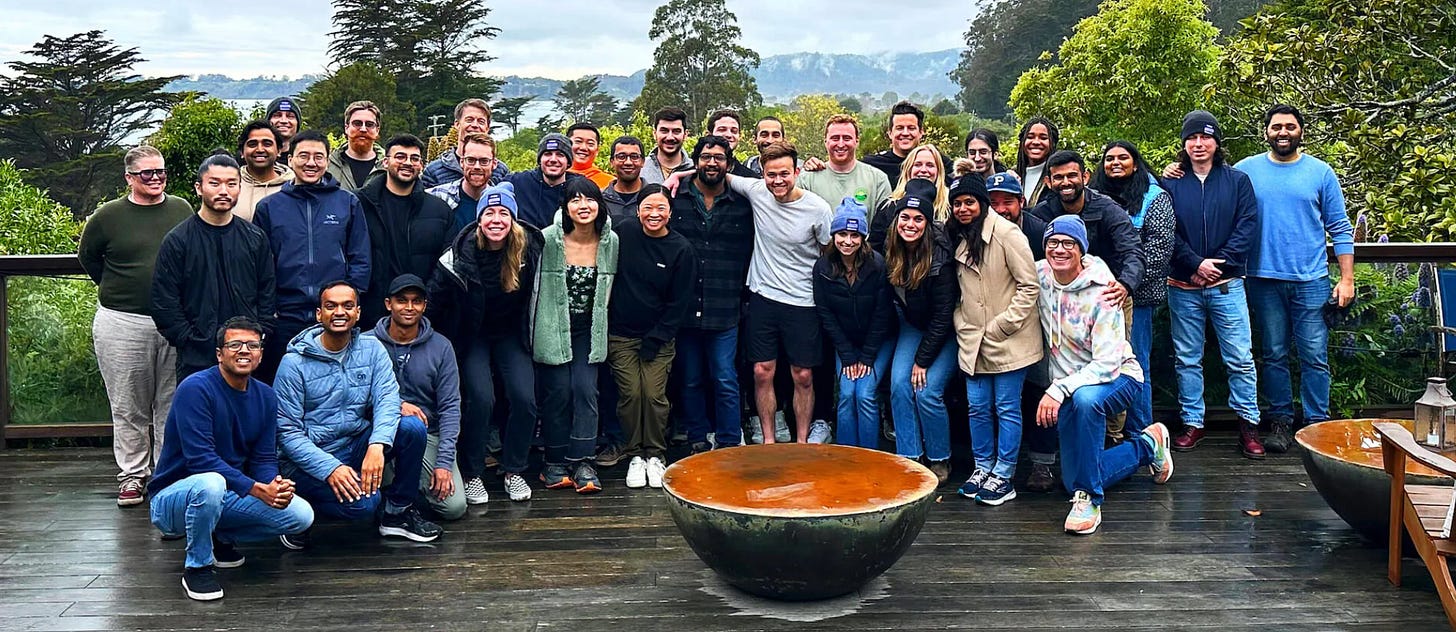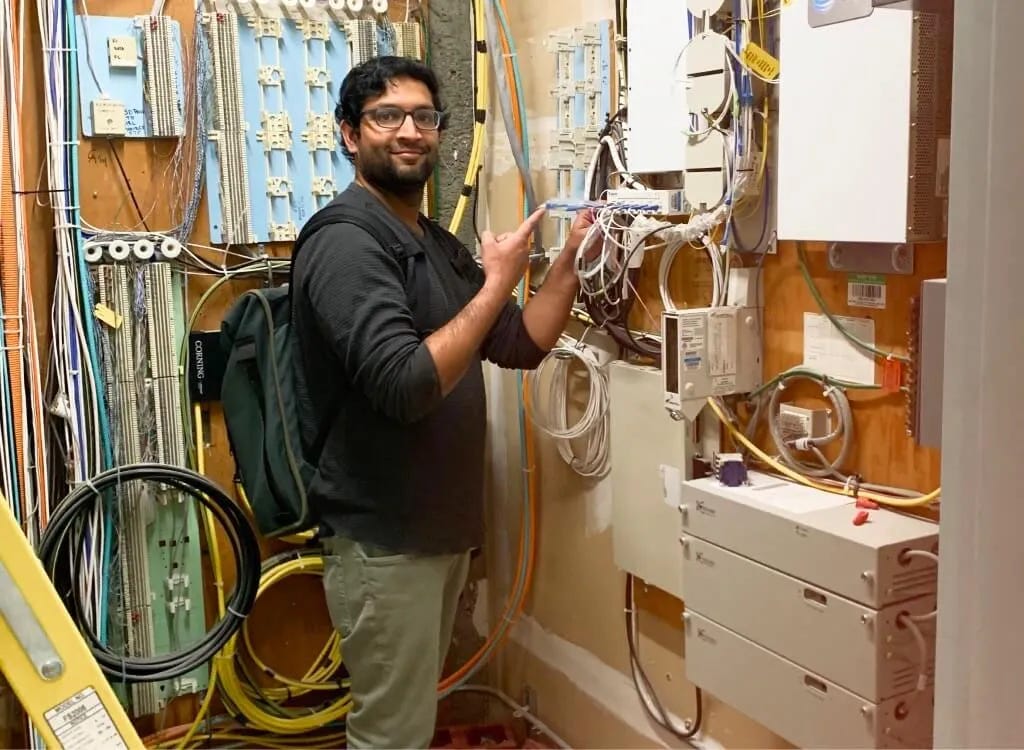What is it really like to work at the fastest-growing companies?
We try to answer that question in the Next Play Spotlight.
In particular, we try to find under-the-radar companies and highlight what makes them unique. Our hope is that documenting these sorts of behind-the-scenes details (which never really make it to big publication press releases) can help you a) discover more interesting opportunities and b) inspire you to think creatively (for any of your own endeavors).
Spotlight: Meter
This Spotlight is on Meter. Thanks to the Meter team for sharing behind-the-scenes details and supporting next play.
First, what is Meter?
Meter provides everything a business needs to set up and manage its internet infrastructure (wifi, networking, etc.). Over time they are hoping that if there’s a packet moving, it will be moving through Meter hardware and software. You can learn more about Meter’s product here. One customer told Meter that their service and support allowed him to be present for the birth of his first child, something he was really nervous wouldn’t happen given the timeline of his new office opening.
Second, and the purpose of the Spotlight, what’s it like to work at Meter?
One big distinction current employees make between working at Meter and other places is just how integrated everything feels across the organization. Meter is what you’d call a “full-stack startup” (i.e. they provide software and hardware and operations). It’s end-to-end and vertically integrated. Because of this they’re focused on keeping all functions, particularly the hardware, software, data, and operations pieces, moving at the same pace, building a singular stack. So the team has to be in pretty constant communication (sales talking to hardware engineers talking to warehouse and deployment operations etc.). And, in a world where most startups tend to be pretty bad at coordinating, Meter has spent a lot of energy figuring out how to operate as a cohesive team really well.
Multiple Meter employees revealed one of their keys: “Everyone at Meter documents their work. New people. Leadership. Everyone. All the time. There is a lot of focus on writing, not just as a means for alignment but also for thinking about what to do. And it’s all shared very transparently. There’s a large internal repo of strategy documents, product specs, and decision logs.” You can also read a bunch of educational resources they have shared publicly here.
Because Meter is vertically integrated they have had to tackle a range of challenges that would probably slow most startups down.
For example, they’ve had to build a lot of their own hardware.
Anil, their co-founder/ceo, talks about this: “There's a great Alan Kay quote about this, which is, "People who are really serious about software should make their own hardware.” And further, we believe that people that build hardware and software should be the ones responsible for it. Originally we started just building a lot of the software, but as it required great hardware, we ended up figuring out where in the world can we make and iterate on hardware really fast. We ended up picking Shenzhen because that's the factory of the world for a long time. We were naive and said, "Let's go for a month. How hard could it be to build hardware?" Ended up being a little bit harder than that. And we really just iterated on the hardware until we knew the software could work really well on it.”
This sort of mentality applies to more than just hardware development. For example, Meter recently launched a product called Command. It’s a tool that lets Meter customers build fully custom software solutions (e.g. dashboards) using a few lines of text. “As an IT person, imagine having a skilled developer sitting next to you building the exact piece of software that you need, whenever you need it. That is Command.”
It’s more or less a rethinking of the work that goes into building internal tools (something that every company needs to figure out). Command presents the sort of “woah that was cool” type experience that you wouldn’t typically expect from a “wifi/networking company.” That’s because Meter does not really think of themselves in that siloed way—they want to build useful technology, and often the usefulness of their work extends far beyond their industry. They think that a lot of their technology decisions/breakthroughs (many of which are still unannounced) may lead to influencing the entire tech industry (and they are excited to contribute to the industry at large).
The team has a strong foundation of openness.
This influences other aspects of the culture: most of their team works in-person in their SF-based office/warehouse, and most of the team eats (what many describe as) delicious/ healthy lunch together cooked by their on-staff-chef every weekday. Leadership talked a lot about wanting the team to really connect with one another—go on long walks in the neighborhood, get to know and understand one another so you can really do your best work.
Most startups have pretty flimsy company values. They are buried in some document or written on the wall but do not actually influence any behavior. Weirdly, every Meter person we spoke with unprompted mentioned how much they appreciate Meter’s core values of demonstrating “kindness and ambition” and pointed to a real-world example of where that came to fruition.
One person mentioned how great it feels to know people are being honest with one another. People say what they think, even if they disagree with you, and do it in a way that really resonates and feels productive.
Another mentioned how it’s amazing to see just how ambitious people are with the company and their own careers, while at the same time seeing how open the company is to supporting you—there are now several examples of people starting in one department (e.g. install operations) and then moving into others like business operations or product.
Another mentioned how weekly all-hands feels unique—it’s not just leadership speaking. It’s voices from around the company sharing updates and showcasing demos.
While it’s hard to test for values, a Meter hiring manager talked about how “it is actually pretty obvious.” Their approach is to do detailed references, where they ask others questions to understand exactly what it’d be like to make this hire. They care about the person’s output, but also spend a lot of time trying to understand what impression the person left on the people around them. “That says a lot about their style of working and what they prioritize.”
The result of having strong foundational values is that you can build more quickly.
Meter employees talked about how there’s very little wasted time. They define wasted time as meetings that are both unproductive and unenjoyable. No one likes wasted time. An employee who previously spent five years at Stripe mentioned how “the speed of product development” is like nothing they’d ever seen before. They had gone on parental leave for six weeks and returned to see a whole suite of new improvements that nearly doubled the performance of their core product.
It’s that sort of roll up your sleeves, do whatever it takes mentality that’s permeated across the company.
Learn more:
You can see Meter’s currently open roles here.
You can email Meter’s talent team here: jobs@meter.com.
You can learn more about Meter’s product and vision here.










